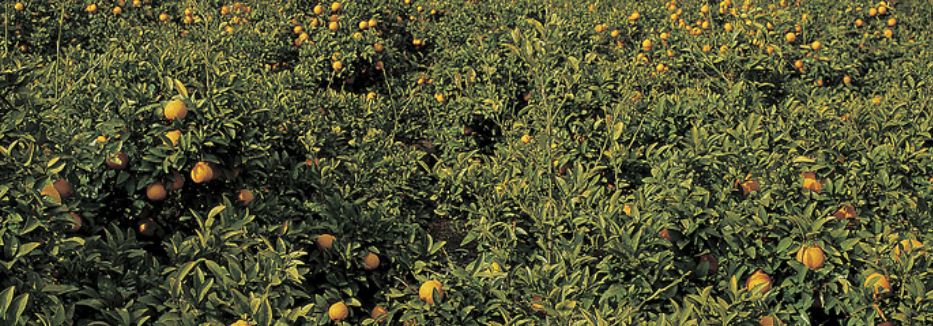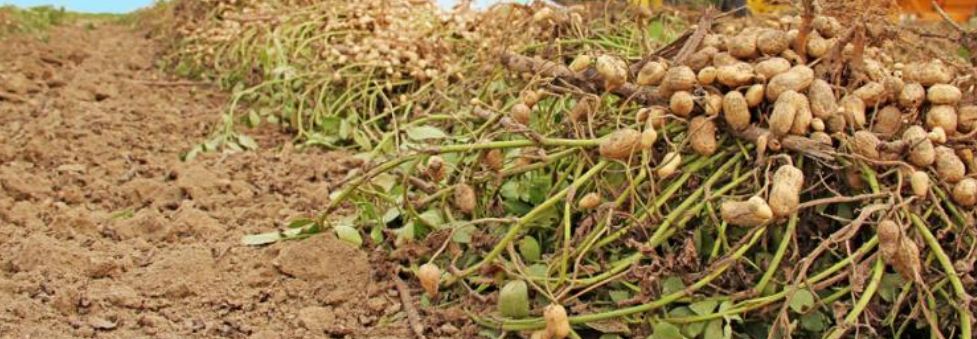Starting a Fruit Farming Business and What It Entails

Fruit farming is the growing of fruit crops which comprises of all seed-bearing structure in flowering plants as well as nuts for commercial and consumption purpose. Here, this article is completely discussing fruit farming for commercial purposes.
Having known your sole aim of venturing into fruit farming, the next step to take to make it a success is to construct a comprehensive business plan just as provided below.
It is of great advantage that most parts of the world are so much blessed with fertile soil which makes it good for growing diverse ranges of food crops including fruits and vegetables.
Starting a fruit farming business is growing day by day in the world as farmers and other entrepreneurs have profited in this business venture.
Fruits are a staple commodity that can be found in the markets just like other food crops and in numerous quality and types which generally has great health and benefits.
Fruits and as well highly sought after and this has made it be one of the lucrative businesses anyone can engage in or use to complement their earnings.
In fruit business, it doesn’t matter if you are a professional farmer or still a novice, once you follow the guidelines below you will be able to succeed in any fruit farming business you chose.
1. Select A Particular Type of Fruit
There are up to 2000 types of fruits around the whole world and thousands of varieties as well. You cannot farm all the fruits at ones, so what you have to do at the initial stage is to select one particular type that is mostly consumed in your area.
It is better you know what kind of fruit that you want to take as your business venture. Some of the fruits are strawberry, mangoes, oranges, and cherry to name but just a few.
The passion fruit you have been dreaming of farming may not be suitable in your area. Some important things you need to consider before choosing the fruit type no matter where you are in the world include;
What kind of fruits the market in your area need
What is the demand for this fruit like?
What volume of this fruit should I start with?
What kind of fruit can effectively grow in your region considering weather and climate conditions?
Which one will yield more profit?
How resistant is this fruit to pests and diseases?
Is there any risk associated with growing this fruit?
After you must have gotten answers to your questions during the course of your market research, then you can take the next step to forge ahead with what you are out for.
2. Study The Fruit You Have Chosen
For any fruit business that you want to start, make sure that you have the basic knowledge about that fruit and how to plant it.
Also, its best planting season, how to get the seedlings, care and maintenance processes required, when to add fertilizer, how to know it’s time for harvest and lots more.
You can get the proper training by working with a farmer that is basically specialized in the cultivation of such fruit in order to get the basic knowledge that will help you succeed.
Additionally, try to find out the varieties available for that particular type of fruits and which one is most profitable for commercial fruit farming.
3. Where To Start
You need farmland to plant your fruit trees, just as every farming business needs a land. The land is considered the most important element when planning to establish a farming business.
As a beginner, it is advisable to get a small farming portion instead of acquiring a large piece of land until you have successfully passed your experimental stage.
When choosing land for fruit farming business, don’t just choose for farming's sake but consider soil type and composition which is one of the main determinants for effective yield and growth of plants.
The soil should be composed of humus and other essential minerals which can be determined by conducting or carrying out a soil test. However, you can also add more vital nutrients to the soil when preparing the land for cultivation by adding organic manure or fertilizer.
Check the pH value as well to make sure that it is normal, neither too acidic nor alkaline.
Suitable farmland for fruit farming should have access to sunlight exposure; topography and demography; good soil type/soil PH and availability of water sources which are all beneficial to the fruit plant. Do not neglect any of them.
4. Start With Less Quantity
The first trial of every business is always considered as the experimental farming stage.
That is; a stage of make the first demonstration fruit farming; test possible hypothesis and make a discovery that will help you to move on while avoiding possible mistakes.
Starting small will help in the effective management of the fruit crops, and will make you to easily face some challenges which might occur at the course of the farming process.
From this little starting step, you will learn from your mistakes and gain better experience that will help you handle large fruit farming operations in subsequent trials.
5. Good Starter Trees And Best Seedlings Matter
Get the best seedlings from other local farmers or from any ministry that oversees the affairs of farming and agricultural practice in the country.
Getting the right and the healthy seed will determine what you will gain in return when they fully develop and mature into fruits.
6. Plant The Fruit Trees
Fruit trees are planted at any season of the year. In a case whereby your location has hot summer or cold winter, you have to wait till spring to enable the plant to adapt to the soil.
You can buy a grafted fruit tree either in a bare-rooted form of potted tree form. The trees should be planted immediately they are purchased.
It is advisable to buy from a local nursery around the vicinity to ensure that you have got the trees that do well in that particular region.
To plant the tree in the soil, dig a hole that will be a bit wider than the plant then put directly at the center of the pit and cover the roots very well with the soil.
7. Disease And Pest Control
Fruit trees are attacked by certain diseases and pests. Therefore you should not wait till it starts before sourcing for ways to control them.
Get the right pest control such as fungicides and disease control chemicals on time and ensure to spread carefully to avoid damaging your plant or the fruits.
For effective management of your plant, you have to keep an eye always on the plant to ensure a good growing state.
8. Source For Target Market On Time
Fruits are highly perishable, so while waiting for it to grow, use that opportunity to start sourcing for new and additional customers.
Once it is time for harvest you can confidently sell to already available potential customers to avoid perishing and discouraging the effort you have made so far.
9. Harvesting & Storage
Fruits are harvested a couple of months after planting depending on the type of fruit you are farming.
Generally, they are harvested when they are full size and the normal fruit color when ripening; the rinds should be glossy and firm at this stage.
Fruits should be kept in optimal storage locations. However, fruits are not to be stored for a long period of time because they can perish easily.
What is fruit farming called?
Fruit farming in agriculture is a branch of botany called pomology which is the study of fruit cultivation; while the person that studies pomology is known as a pomologist.
How do fruits grow?
Just as fruits differ in types so the plants as well. Each type of fruit emerges from different types of plants.
Some fruits grow on trees. Examples: cherries, bananas, apples, etc. Some others grow on vines such as strawberries, grapes, and watermelons while the rest like raspberries and it's related grow on bushes.
What fruits don’t grow on trees?
The majority of fruits don’t grow on the tree. The number of fruits types that do not grow on the tree is approximated in percentage at 94%. They include the following:
Tomatoes-13%
Watermelons-16%
Strawberries-27%
Pineapples-7%
Raspberries-4%
Blueberries-8%
Grapes-19%
Examples of fruits that grow on trees are cherries, apples, bananas and whole lots more.
What are the 6 categories of fruits?
The eight (8) known categories of fruits are:
Tropical Fruits grow warm climates. They are entirely different in skin structure and seed characteristics.
Berries: Are the type of fruits known for fragile cell structure. They are juicy and pulpy with the flesh surrounded by tiny seeds.
Aggregate Fruit – These are fruits that grow from one flower with many pistils. Eg. Strawberries.
Drupes Fruits are surrounded by juicy flesh with a single seed or pit inside.
Citrus Fruits: They grow in warm regions. They have firm though outer skin and pulpy flesh.
Melons: Are characterized by juicy flesh with netted hard outer surface.
Pomes: Have an enlarged fleshy area framing the core with smooth skin.
Legumes – Produce unique types of fruits that split along two sides. Examples are tamarind, peas, clover, etc.
What fruit category is an apple?
Apples are classified under pome fruits under the plant family Rosaceae; sub-family pomoideae
What are the classifications of fruits?
Fruits are generally classified into three (3) main types.
They are simple fruits, aggregate fruits, and multiple fruits.
Fruit farming business is lucrative because it is a great source of food forming parts of our daily meal. Again, they are used in the production of lots of consumer goods such as beauty products, cosmetics and other range of goods.
Another advantage of fruit farming is that you can start it in your backyard. You don’t need to own a large estate or acre of land before planting your dream fruit for commercial purposes.
This article has is published to provide readers with the essential planning and strategies that make you succeed and excel more than your competitors in the business.




